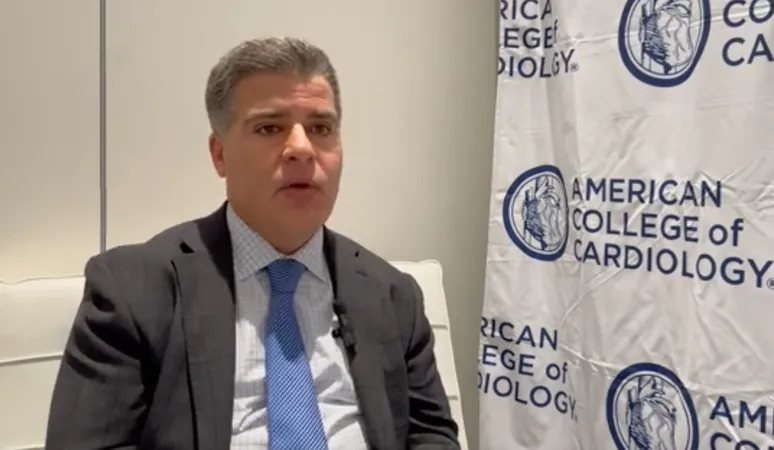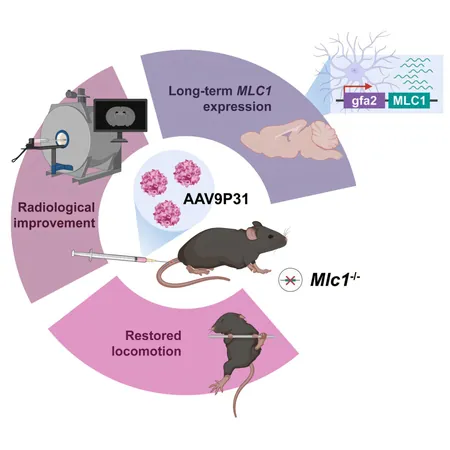
Factor XI Inhibitors: The Game-Changer in Stroke Prevention? | ACC 2025
2025-03-30
Author: Li
Factor XI inhibitors are emerging as a groundbreaking alternative in the field of anticoagulation therapy, especially for patients with atrial fibrillation. Recent insights from Dr. Christian T. Ruff, M.D., M.P.H., a leading cardiologist at Brigham and Women's Hospital and associate professor at Harvard Medical School, highlight the potential of these novel agents to transform stroke prevention approaches.
Direct oral anticoagulants (DOACs) have been widely utilized for their efficacy in mitigating stroke risks; however, the inherent bleeding risks associated with these medications pose a significant challenge, particularly for high-risk patients. Dr. Ruff elucidated this concern during an interview with Managed Healthcare Executive, stating, “I think what I envision with factor XI inhibition is that I hope they’re as effective as the DOACs. If they’re more effective, great. But the reason we’re not using the DOACs is not because they’re not effective—it’s because the bleeding is intolerable for many patients.”
The mechanism of action for factor XI inhibitors is distinct. Unlike traditional anticoagulants, which broadly inhibit clot formation, these inhibitors target specific pathways in the clotting cascade involved in thrombosis. This targeted approach minimizes disruption of normal hemostasis, potentially resulting in a significant decrease in severe bleeding events, including dangerous intracranial hemorrhages.
Dr. Ruff also emphasized a critical barrier to the widespread adoption of anticoagulation therapy: patient apprehension surrounding bleeding. “Bleeding, or the fear of bleeding, drives the entire utilization of anticoagulation,” he noted. Thus, the development of factor XI inhibitors could alleviate these fears and encourage more patients to consider life-saving anticoagulant therapies.
As research continues, the hope is that these innovative agents might not only match the effectiveness of DOACs but offer enhanced safety profiles, ultimately reducing the burden of strokes and improving patient outcomes. If successful, factor XI inhibitors could redefine stroke prevention strategies, making anticoagulation therapy more accessible and acceptable to those at risk.
Could this be the breakthrough the medical community has been waiting for? Stay tuned as we follow this exciting development in cardiovascular health!



 Brasil (PT)
Brasil (PT)
 Canada (EN)
Canada (EN)
 Chile (ES)
Chile (ES)
 Česko (CS)
Česko (CS)
 대한민국 (KO)
대한민국 (KO)
 España (ES)
España (ES)
 France (FR)
France (FR)
 Hong Kong (EN)
Hong Kong (EN)
 Italia (IT)
Italia (IT)
 日本 (JA)
日本 (JA)
 Magyarország (HU)
Magyarország (HU)
 Norge (NO)
Norge (NO)
 Polska (PL)
Polska (PL)
 Schweiz (DE)
Schweiz (DE)
 Singapore (EN)
Singapore (EN)
 Sverige (SV)
Sverige (SV)
 Suomi (FI)
Suomi (FI)
 Türkiye (TR)
Türkiye (TR)
 الإمارات العربية المتحدة (AR)
الإمارات العربية المتحدة (AR)